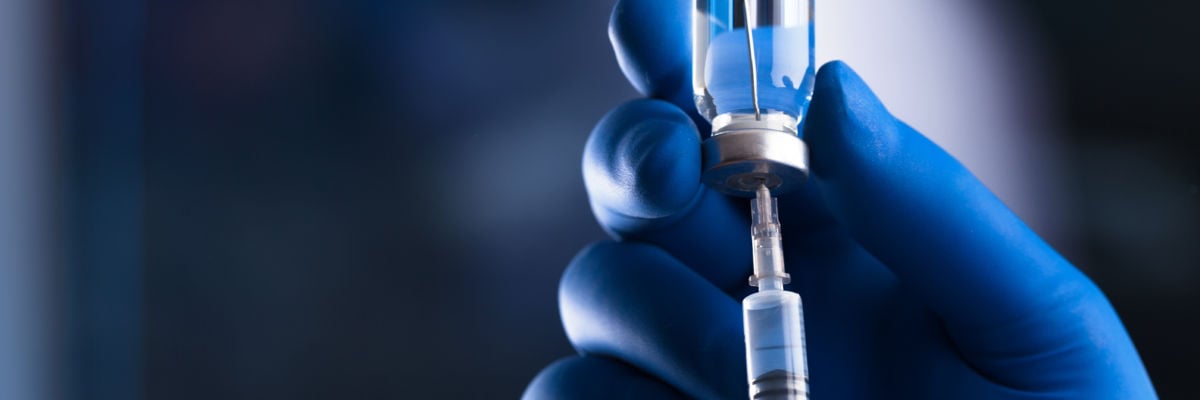
Many Catholics currently find themselves faced with a COVID vaccine mandate of one sort or another. Normally, those who wish not to get vaccinated can request a religious exemption. But Catholics might find that they cannot rely on their parish priest or their bishop to support them in this endeavor. Indeed, some bishops have opted for a heavy-handed, coercive approach, even prohibiting their priests from aiding local Catholics who seek a religious exemption. Little matter, since such aid is not necessary in requesting a religious exemption. This article will outline the arguments a Catholic can use to request a religious exemption, without assistance from a priest or bishop.
It must be stated at the outset: to pressure the faithful to “get the jab” constitutes a clear abuse of the teaching and governing authority entrusted to the office of bishop (or priest). Therefore, Catholics are in no way obliged to relent to any Church authority, even in the person of the Holy Father, who insists they receive a COVID vaccine (or any vaccine). Whether to get vaccinated marks, at bottom, a matter of a prudential judgment of conscience. And on such matters, particularly when opposing sides are both arguable, there can be a legitimate diversity of opinion among good-willed Catholics. The most that any Catholic (including a bishop) can say, then, is that a Catholic may take the vaccine, never that he must. Logically and morally speaking, it does not follow that to say a Catholic can in good conscience take the vaccine means that a different Catholic cannot oppose the vaccine (particularly when mandated).
This holds especially in the case of prudential judgments of conscience that concern matters of medical practice. Definitive pronouncements on such issues lie outside the proper competence of ecclesiastical authorities. Let us be frank: It is deeply troublesome that certain bishops have shown themselves willing to run roughshod over such a bedrock principle of Catholic moral teaching as Catholics’ right to render a prudential judgment of conscience, especially when it concerns their physical well-being. That they should use as cover generalized appeals to the moral duty not to risk causing physical harm to our neighbor compounds the problem.
True, Pope Francis voiced such a blanket appeal, asserting on one occasion the moral obligation to get one of the COVID vaccines, since, as he suggested, it is “about the lives of others.” This remark by the Holy Father has been invoked as grounds for denying a religious exemption for those Catholics who request it.
This marks an illegitimate move, and for two reasons. First, Pope Francis voiced his opinion (his private opinion) on the moral obligation to get vaccinated in an interview with Italy’s TG5 news program—hardly a case of authoritative, binding papal instruction. Second, it ignores what has been highlighted above: that deciding whether to get vaccinated remains a matter of prudential judgment of conscience and that on such matters, Catholics are free to make their own judgment, regardless of what any bishop, priest, or pope might say. The Catechism of the Catholic Church (CCC) clearly asserts that the faithful must never be forced to act contrary to their conscience (1782).
Let us consider, then, how a Catholic might request a religious exemption from the COVID vaccine. There are three sound arguments to be made.
First, there is the appeal to Catholic authorities. Pope Francis’s remark on the moral obligation to get vaccinated notwithstanding, there are competing voices among ecclesiastical authorities on this issue. Over and above the Catechism’s affirmation of the inviolate sanctity of a person’s conscience, there is the Note on the Morality of Using Some Anti-COVID Vaccines, issued by the Congregation for the Doctrine of the Faith (on December 21, 2020). In particular, Catholics can cite no. 5 of this Note, which asserts: “Practical reason makes evident that vaccination is not, as a rule, a moral obligation and that, therefore, it must be voluntary.”
A Catholic could also cite the National Catholic Bioethics Conference—a high-level, highly regarded scholarly authority on moral biomedical issues—which issued its Statement on COVID-19 Vaccine Mandates (on August 30, 2021). In its opening line, this Statement reads: “The National Catholic Bioethics Center (NCBC) does not endorse mandated COVID-19 immunization with any of the three vaccines that have received approval or emergency use authorization as of August 23, 2021, from the US Food & Drug Administration (FDA).”
A second, stronger argument is to maintain that, given the worrisome short-term side effects and the unknown long-term effects of all the COVID vaccines, Catholic belief in the sacredness of the body allows the faithful to oppose them. “Know that your body is a temple of the Holy Spirit,” writes St. Paul in 1 Corinthians 6:19-20, “and so glorify God in your body” (see CCC 364). Catholics can argue that they would not be glorifying God in their bodies by getting the jab (no matter if many other Catholics, exercising their prerogative, are willing to take their chances on the vaccines).
As of this writing (almost a year since the release of the vaccines), data from the U.S. Centers for Disease Control’s Vaccine Averse Event Reporting System (VAERS) show hundreds of thousands of adverse short-term effects, including over a hundred thousand serious injuries and deaths—with a Harvard Pilgrim Health Care study suggesting that only one percent of actual adverse reactions to the COVID vaccines are reported to VAERS. Nor do the vaccines have any long-term studies showing their far-reaching effects. Without the data of long-term effects as a baseline, and considering that the vaccines utilize novel and as yet minimally tested mRNA gene therapy, it’s not really possible to give free and informed consent to the vaccine. Indeed, mandates to take such a product start to look like forced medical experimentation. (See CCC 2295 for the evils of this type of experimentation.)
A third argument to be made against getting vaccinated is that aborted fetal cell lines were used in the development of the vaccines. To be clear, the Note issued by the Congregation for the Doctrine of the Faith cited above observes that getting the vaccine is morally acceptable because it implies mere “remote passive material cooperation” with abortion. At the same time, Catholics can argue that their staunch, faith-inspired opposition to abortion means they cannot in conscience take an abortion-tainted vaccine, full stop.
Finally, parents who find themselves faced with a vaccine mandate for their children can draw on these same arguments in requesting a religious exemption. They should highlight that their Catholic faith affirms unequivocally that their rights as parents with respect to overseeing their children’s well-being are, as the Catechism puts it, “primordial,” “inalienable,” and “fundamental” (see CCC 2221 and 2229). The argument centered on the sacredness of the body is even more compelling for children, since, statistically speaking, COVID poses no serious threat to children, nor are children significant vectors of transmission. There is no good medical reason to vaccinate children against COVID.
Equipped with any or all of these arguments, Catholics can rest assured that they are making the strongest case possible for a religious exemption from a vaccine mandate. As everyone know, there is no guarantee the exemption will be granted—but where it’s not, a denial will be not in response to the merits of the argument, but in outright dismissal of them.



